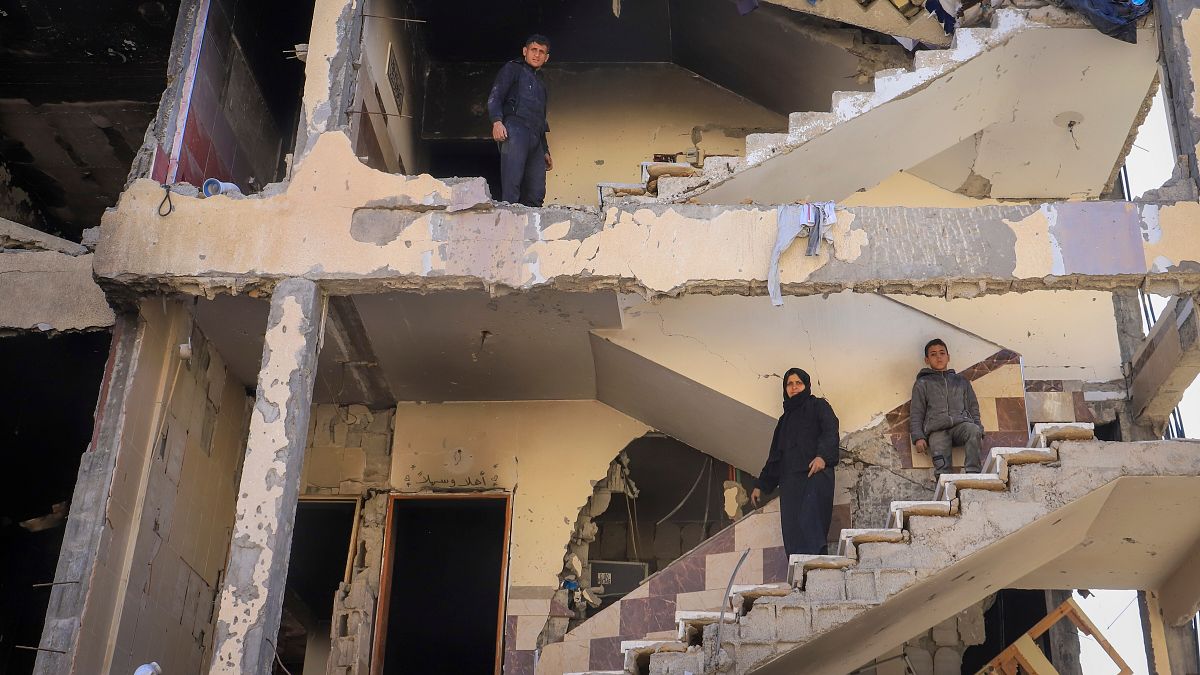Is climate change to blame for deadly Cyclone Chido?

Authorities are now battling to prevent hunger, disease and lawlessness from spreading across the island.
Hundreds are feared dead in Mayotte after Cyclone Chido hit the island on Saturday 14 December.
The storm is one of the most powerful to ever hit the French overseas territory. It brought winds of more than 200kph flattening entire neighbourhoods and cutting off power and communications to many communities.
The official death toll has risen to 22 with more than 1,400 people injured, according to the latest report from Mayotte Hospital quoted by Ambdilwahedou Soumaila, the mayor of the capital, Mamoudzou. But authorities believe hundreds – possibly thousands – of people may have been killed by the cyclone due to a high number of undocumented migrants.
Authorities are now battling to prevent hunger, disease and lawlessness from spreading across the island.
“The images are apocalyptic. It’s a disaster, there’s nothing left,” a nurse working in the main hospital in Mamoudzou told French broadcaster BFM TV.
Climate change intensified Cyclone Chido
Cyclone Chido is the deadliest storm to hit Mayotte in more than 90 years, according to French weather service Meteo France. It hit the island as an intense tropical cyclone – a rare event for the overseas territory.
A rapid study from Imperial College London has found that human-caused climate change intensified Tropical Cyclone Chido’s destructive winds, elevating it from a Category 3 to a Category 4 storm when it struck Mayotte.
“Our study confirms climate change has made tropical cyclones like Chido more intense and more destructive,” says Dr Nathan Sparks, research associate for the Department of Physics at Imperial College London.
Scientists found that climate change increased Chido’s wind speeds by about 11 kph when it hit the island. It also made the storm more likely with the chance of cyclones of this strength hitting Mayotte becoming 40 per cent more likely compared to pre-industrial times
“This result is consistent with trends in tropical cyclones as the climate warms. Many are stepping up the Saffir-Simpson scale to the most destructive categories,” Dr Sparks adds.
He says that even in a developed country, a Category 4 storm can cause severe damage. But in Mayotte where many residents live in informal housing, it caused complete devastation.
Hot sea temperatures that provided the fuel for Chido to form and rapidly intensify were also made more than 50 times more likely by climate change.
“Victims of poverty have become victims of climate change in Mayotte,” says Dr Friederike Otto, co-founder of World Weather Attribution at Imperial College London.
“This is a tragic illustration of climate change preying on the poorest and most vulnerable. Unfortunately, this is becoming the norm in Africa – a continent that has contributed the least amount of emissions but is enduring some of the worst extreme weather.
“If the countries continue burning fossil fuels, extreme weather will continue to deepen inequality, claiming lives and destroying livelihoods.”
If warming reaches 2.6°C, which is expected to occur by 2100 unless fossil fuels are rapidly replaced with renewable energy, tropical cyclones like Chido could become a further 26 per cent more likely.
Cyclone response could feed France’s ongoing political crisis
With President Emmanuel Macron pledging to visit the overseas territory in the coming days, the crisis threatens to deepen the ongoing political crisis in France.
Newly appointed Prime Minister François Bayrou has been criticised for his handling of the disaster after attending a crisis meeting via video rather than in person. Bayrou has said he is busy trying to form a government.
Acting Interior Minister Bruno Retailleau, from the conservative Republicans party, told a news conference in Mayotte that the early warning system had worked “perfectly” but many undocumented migrants had not come to designated shelters. Officials have said they may not have come for fear of being arrested.
Left-wing politicians have instead pointed the finger at France’s neglect of Mayotte – particularly in preparing the overseas territory for extreme weather events linked to climate change.
Socialist Party chairman Olivier Faure criticised Retailleau in a post on the social media site X.
He said he “could have asked about global warming which will produce increasingly intense climatic disasters”, as well as extreme poverty, and the need for rapid reconstruction instead of “resuming his crusade against migrants”.
Europe’s overseas territories are particularly vulnerable to climate change
Failure to consider the risks overseas territories face from climate change isn’t a new thing for European countries.
A recent study by the French climate change group Réseau Action Climat found that overseas territories are the regions of France that are most exposed to the impacts of climate change. The effects are already visible and sea level rise could see some places no longer habitable within this century, such as the Tuamotu atolls in French Polynesia.
Despite their vulnerability, European countries have done little to shore up their overseas territories against climate change. Eight residents from the Caribbean island of Bonaire together with Greenpeace are currently taking the Dutch government over its failure to protect a former colony in the Caribbean from sea level rise.
The Caribbean island is still part of the Netherlands and is classed as an independent local authority area.
World News || Latest News || U.S. News
Source link



